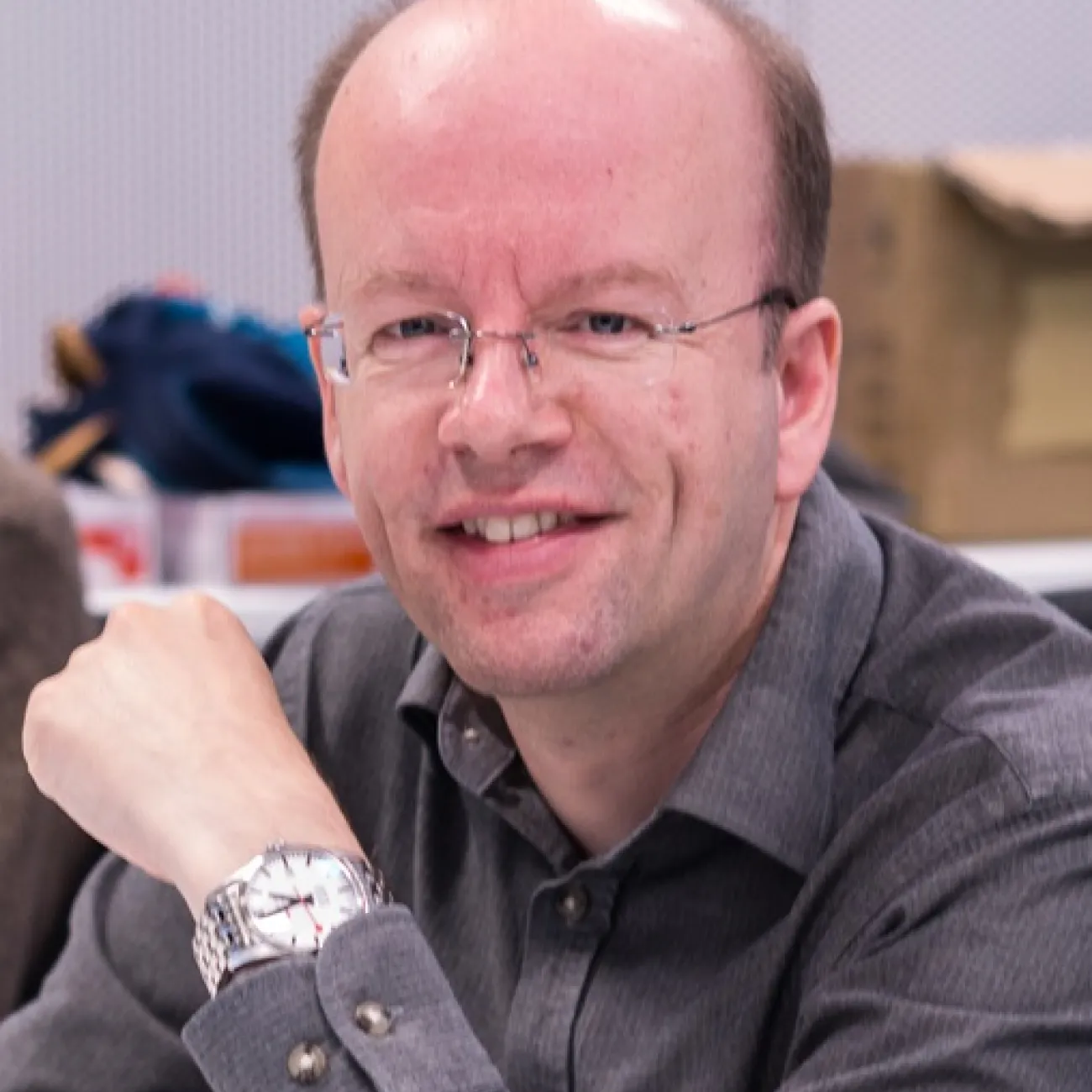About
Ian Hawke works on gravitational waves from neutron star mergers. His focus is on nonlinear numerical simulations. He teaches topics in Applied Mathematics often linked to computational, numerical, and modelling problems.
You can update this in Pure (opens in a new tab). Select ‘Edit profile’. Under the heading and then ‘Curriculum and research description’, select ‘Add profile information’. In the dropdown menu, select - ‘About’.
Write about yourself in the third person. Aim for 100 to 150 words covering the main points about who you are and what you currently do. Clear, simple language is best. You can include specialist or technical terms.
You’ll be able to add details about your research, publications, career and academic history to other sections of your staff profile.
Research
Research interests
- Numerical relativity
- Neutron Stars
- Gravitational waves
- Relativistic matter
- Numerical simulation and analysis
Current research
Ian Hawke's current research focuses on numerical simulations of dense matter in general relativity. The aim is to use results of numerical simulations combined with astrophysical observations, particularly using gravitational waves, to give information about extreme states of matter and gravity.
Recent specific areas of research link theoretical with practical aspects of complex matter interactions within current nonlinear numerical simulations. These include a variety of multiscale modelling techniques and approximations, alongside the application of modern computing architectures.
You can update the information for this section in Pure (opens in a new tab).
Research groups
Any research groups you belong to will automatically appear on your profile. Speak to your line manager if these are incorrect. Please do not raise a ticket in Ask HR.
Research interests
Add up to 5 research interests. The first 3 will appear in your staff profile next to your name. The full list will appear on your research page. Keep these brief and focus on the keywords people may use when searching for your work. Use a different line for each one.
In Pure (opens in a new tab), select ‘Edit profile’. Under the heading 'Curriculum and research description', select 'Add profile information'. In the dropdown menu, select 'Research interests: use separate lines'.
Current research
Update this in Pure (opens in a new tab). Select ‘Edit profile’ and then ‘Curriculum and research description - Current research’.
Describe your current research in 100 to 200 words. Write in the third person. Include broad key terms to help people discover your work, for example, “sustainability” or “fashion textiles”.
Research projects
Research Council funded projects will automatically appear here. The active project name is taken from the finance system.
Publications
Pagination
Public outputs that list you as an author will appear here, once they’re validated by the ePrints Team. If you’re missing any outputs that you’ve added to Pure, they may be waiting for validation.
Supervision
Current PhD Students
Contact your Faculty Operating Service team to update PhD students you supervise and any you’ve previously supervised. Making this information available will help potential PhD applicants to find you.
Teaching
Ian's teaching concentrates on topics in Applied Mathematics, often linked to modelling, computing, numerics, and differential equations. In recent years this has concentrated on Operational Research and Computing (MATH1058), Modelling with Differential Equations (MATH6149), and Numerical Methods (MATH3018/6141).
For projects, Ian usually supervises in similar areas of numerics and differential equations, often linked to applications in fluids (including shock waves) and gravity.
You can update your teaching description in Pure (opens in a new tab). Select ‘Edit profile’. Under the heading and then ‘Curriculum and research description’ , select ‘Add profile information’. In the dropdown menu, select – ‘Teaching Interests’. Describe your teaching interests and your current responsibilities. Aim for 200 words maximum.
Courses and modules
Contact the Curriculum and Quality Assurance (CQA) team for your faculty to update this section.
External roles and responsibilities
These are the public-facing activities you’d like people to know about.
This section will only display on your public profile if you’ve added content.
You can update your external roles and responsibilities in Pure (opens in a new tab). Select ‘+ Add content’ and then ‘Activity’, your ‘Personal’ tab and then ‘Activities’. Choose which activities you want to show on your public profile.
You can hide activities from your public profile. Set the visibility as 'Backend' to only show this information within Pure, or 'Confidential' to make it visible only to you.
Biography
Since building an international collaboration on simulating relativistic fluids based in Europe, Ian moved to Southampton as a Lecturer in 2005. He continues to be involved in the international Cactus project for large scale simulations and is an author and maintainer of the Whisky code for simulating relativistic hydrodynamics, and has worked on related projects such as the Carpet mesh refinement code and the Einstein toolkit. He now has research interests in all aspects of numerical simulations of neutron stars, including relativistic multifluids and solid (elastic) matter.
He is co-Director of the EPSRC Centre for Doctoral Training in Next Generation Computational Modelling.
You can update your biography section in Pure (opens in a new tab). Select your ‘Personal’ tab then ‘Edit profile’. Under the heading, and ‘Curriculum and research description’, select ‘Add profile information’. In the dropdown menu, select - ‘Biography’. Aim for no more than 400 words.
This section will only appear if you enter the information into Pure (opens in a new tab).
Prizes
You can update this section in Pure (opens in a new tab). Select ‘+Add content’ and then ‘Prize’. using the ‘Prizes’ section.
You can choose to hide prizes from your public profile. Set the visibility as ‘Backend’ to only show this information within Pure, or ‘Confidential’ to make it visible only to you.
